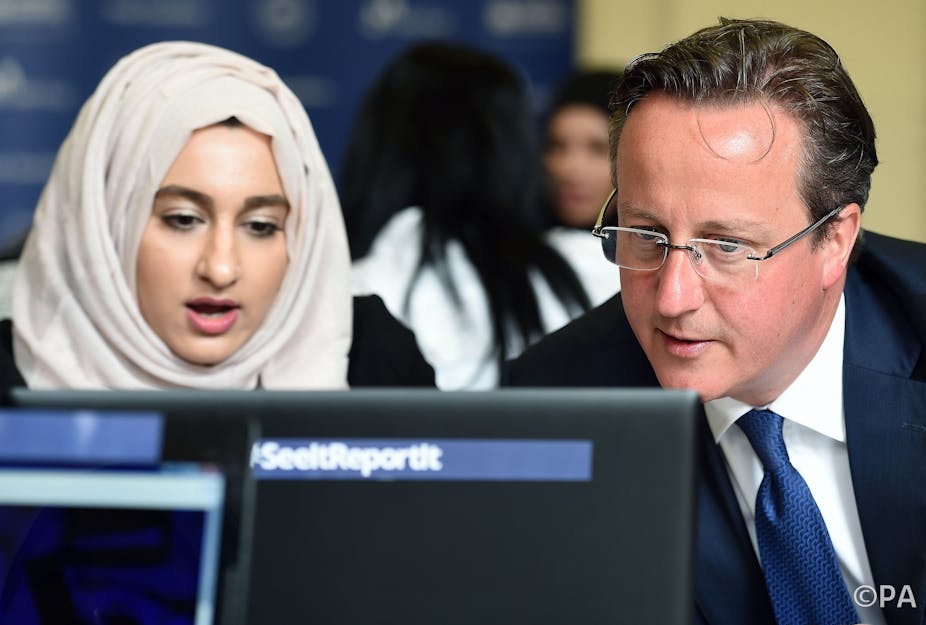There are enormous dangers in the way child protection legislation in the UK intersects with Channel, the government’s anti-radicalisation programme. There are only a few legal steps between the suggested interventions set out in the Channel guidance and the possibility of a child being removed from their home because their family’s political views are unacceptable and don’t adhere to “British values”.
This runs the risk of violating the overriding principles of both domestic UK child protection law and children’s rights set down in the 1989 UN Convention on the Rights of the Child. It has also been argued that it breaches the European Convention on Human Rights .
This has happened in the recent past in countries such as Hungary and Argentina, also motivated by a desire to “save” children from harmful influences. Adolfo Pérez Esquivel, the Nobel laureate and human rights activist, has pointed out that both the Church and military in Argentina justified removing and placing children from political opponents for adoption as a necessary step to protect them from harmful influences.
Alarm bells
Channel is part of the government’s overall Prevent strategy issued in 2011. While the statute does not refer to children or young people, guidance for the panels focuses almost entirely on interventions relevant to young people with only cursory references to “vulnerable” adults. Section 2 of the guidance states emphatically that preventing “radicalisation” is a “protection” issue that may require action by social workers:
The way in which Channel will be delivered may often overlap with the implementation of the wider safeguarding duty, especially where vulnerabilities have been identified that require intervention from social services, or where the individual is already known to social services.
It is precisely this overlap that rings alarm bells. Guidance does not clarify how the overlap with potential criminal prosecution will be managed. Nor does it set out how young people are to be protected from: “arbitrary or unlawful interference with his or her privacy, family, home or correspondence … (and) unlawful attacks on his or her honour and reputation” – article 16 of the 1989 UN Convention of the Rights of the Child which the UK has ratified.
The guidance recommends that if parental consent for the referral of a young person to a panel is not forthcoming and there are “vulnerabilities” in the home environment, it may be necessary for action by social workers under section 17 of the Children Act 1989, with the potential for intervention in their family life or for the compulsory removal of their child under section 47 of the same act.
“Extremism” is defined in the guidance primarily as opposition to listed “fundamental” British values, as though the definitions of these values are undisputed and uncontested. To define unacceptable political views and expressions of dissent as child abuse is a dangerous step to take.

Of course, removing children from their families to protect them from significant harm may sometimes be necessary. Enormous strides have been made in the detection and prevention of physical child abuse and recognition and understanding of child sexual abuse. There is now a substantial body of knowledge about the nature and causes of child abuse and how it may be prevented.
None of this knowledge is evident in Channel guidance and it is misleading to imply that what is primarily a surveillance operation is intended to protect young people from harm.
Extra pressure on social workers
As Channel guidance is not a statutory duty but advice which authorities must have “regard”, it is hoped that social workers involved in using it will maintain the highest professional standards and integrity and ensure interventions are not instigated for political purposes.
However, in the Queen’s speech, the new Conservative government revealed that the Police and Criminal Justice Bill will pave the way to make a criminal offence of wilful neglect for professionals who fail to act on child protection concerns. It’s possible that this could mean social workers who resisted making a statutory intervention that was deemed necessary by a panel could be charged with wilful neglect.
Channel guidance conflates the abuse of children and young people with prevention of terrorism initiatives in gravely misleading ways. It also undermines the paramount principles regarding the welfare of children in both domestic legislation and the UN Convention on the Rights of the Child.
In its framework for assessing a child’s vulnerability, the Channel guidance identifies factors such as “a need for identity, meaning and belonging” and “a desire for political or moral change” as indicators of vulnerability to involvement in terrorism. Surely we want to educate our young people to strive for meaning and belonging, and surely political and moral change is a characteristic of human society. The Channel programme will not protect young people from becoming drawn into terrorist violence but by failing to respect the desire for justice, it runs the risk of alienating them further. The programme should be withdrawn.

